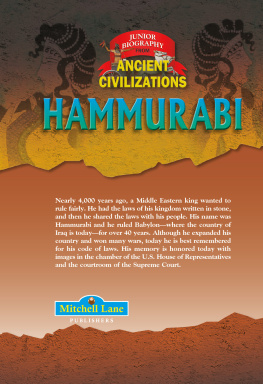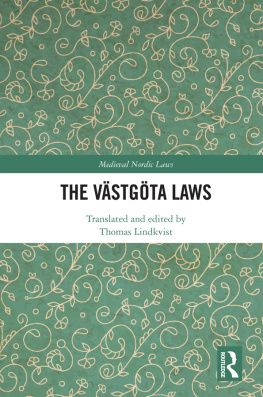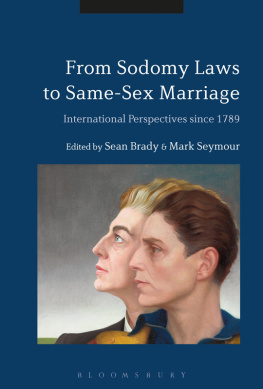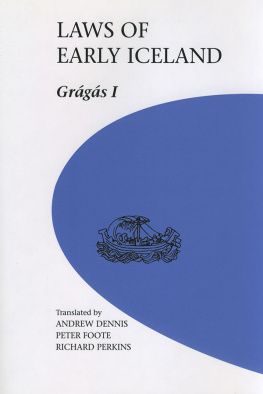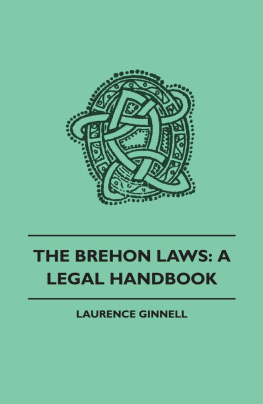TORONTO MEDIEVAL TEXTS AND TRANSLATIONS, 14
THE BEGINNINGS OF ENGLISH LAW
The laws of thelberht of Kent (ca. 600), Hlohere and Eadric (685x686), and Wihtred (695) are the earliest laws from Anglo-Saxon England, and the first Germanic laws written in the vernacular. They are of unique importance as the only extant early medieval English laws that delineate the progress of law and legal language in the early days of the conversion to Christianity. thelberhts laws, the closest existing equivalent to Germanic law as it was transmitted in a pre-literate period, contrast with Hlohere and Eadrics expanded laws, which concentrate on legal procedure and process, and contrast again with the laws of Wihtred, which demonstrate how the new religion of Christianity adapted and changed the law to conform to changing social mores.
This volume updates previous works with current scholarship in the fields of linguistics and social and legal history to present new editions and translations of these three Kentish pre-Alfredian laws. Each body of law is situated within its historical, literary, and legal context, annotated, and provided with facing-page translation.
(Toronto Medieval Texts in Translation)
LISI OLIVER is an associate professor in the Department of English at Louisiana State University.
The Beginnings of English Law
LISI OLIVER
University of Toronto Press 2002
Toronto Buffalo London
Printed in the U.S.A.
Reprinted in paperback 2012
ISBN 0-8020-3535-3 (cloth)
ISBN 978-1-4426-1483-3 (paper)
Printed on acid-free paper
National Library of Canada Cataloguing in Publication Data
Oliver, Lisi
The beginnings of English law
(Toronto medieval texts and translations, 14)
Annotated edition of the early Kentish laws, with facing page translation and commentary.
Includes bibliographical references and index.
ISBN 0-8020-3535-3 (bound). ISBN 978-1-4426-1483-3 (pbk.)
1. Law, Anglo-Saxon Translations into English. 2. Law Great Britain Early works to 1800. 3. Law Great Britain History Sources. 4. Law England Kent History Sources. 5. Common law History Sources. 6. Christianity and law. 7. English language Old English, ca. 4501100 Texts. 8. Anglo-Saxons Kings and rulers. 9. Manuscripts, English (Old).
I. Title. II. Series.
KD 542.045 2002 349.4209021 C2002-900153-6
University of Toronto Press acknowledges the financial assistance to its publishing program of the Canda Council for the Arts and the Ontario Arts Council.
University of Toronto Press acknowledges the financial support for its publishing activities of the Government of Canada though the Canada Book Fund.
In memory of
William Alfred
who taught me Old English,
I offer, in his own words,
these bare and patient bones of language
on which we build this petulant flesh of empire.
Contents
Preface
This volume contains new editions and facing-page translations of the three Kentish pre-Alfredian laws: those of thelberht (ca. 600), Hlohere & Eadric (sometime between 685 and 686) and Wihtred (695). These are the earliest Anglo-Saxon laws to have survived, and the first Germanic laws written in the vernacular. The text of thelberht is the closest extant equivalent to Germanic law as it was transmitted in a preliterate period, while the laws of Hlohere & Eadric and Wihtred testify to the expansion of customary law when laws were first cast in the medium of writing. The text of Hlohere & Eadric concentrates on legal procedure and process, discussion of which is almost entirely lacking in the tersely worded clauses of thelberht. The laws of Wihtred subsequently reveal the way in which the new religion of Christianity adapted and altered the law to reflect changing social mores. It must be kept in mind that Anglo-Saxon England in this period was not a single entity, but rather a cluster of seven or more individual kingdoms, of which Kent was only one. But the other early legal text we have that of the West Saxon king Ine was drafted at roughly the same time as the last of the three Kentish texts, and the next laws to be written those of Ines descendent Alfred the Great date from almost two centuries later. The trio of texts contained in this volume, then, is of unique importance to legal, historical, and linguistic scholars. Together they delineate the progress of law and legal language in the early days of the conversion to Christianity in the only territory of Anglo-Saxon England for which we have any evidence.
Both editions and translations draw on the work of previous interpreters but update their analyses to reflect current scholarship in the fields of linguistics and social and legal history. The texts are annotated with interpretation of individual clauses, while commentary following each body of laws discusses the legal implications of related sections. Each body of law is situated within its historical and legal context. A diplomatic transcription is provided in an appendix.
It is hoped that this volume will serve the needs of readers in a variety of disciplines. Legal scholars can use it as a springboard for investigation of the historical development of the modern Anglo-American legal system. For the scholar of medieval history, it provides evidence of the evolution of Anglo-Saxon law and society during the early stages of the transition from paganism to Christianity. The diplomatic transcription provides historical linguists with an accessible reproduction of three of our earliest Old English texts, allowing analysis of the early development of the Anglo-Saxon language. And for students of Old English literature, these laws provide a further example of the balance of pagan and Christian elements found in such literary works as Beowulf and The Seafarer.
Finally, one must always bear in mind that the nature of the material is such that interpretation of the text often raises more questions than are answered. It is, however, precisely in the raising of such questions that scholarly discourse advances.
Acknowledgments
The springboard for this book was my doctoral dissertation; my dissertation director Calvert Watkins and advisers Dan Donoghue and Charlie Donahue have been of tremendous assistance both then and since. I can overstate neither their intellectual nor their moral support, and I am greatly indebted to them. I would also like to thank Patrick Wormald, who has generously and graciously given of his time to read and respond not only to my dissertation but also to many subsequent papers that were absorbed into this volume. Thanks also to John Fischer, Ben Fortson, Jesse Gellrich, Ben Guelfo, Mark Hale, Kent Hare, Michael Hegarty, Dominique Homberger, and Joshua Katz, who have kindly read parts of drafts at various periods, and to Kathryn Mac-Donald and Judy Kemerait, who helped with bibliographic research. The comments on earlier drafts made by the University of Toronto Presss anonymous readers have immeasurably improved this book; I only regret that their anonymity makes it impossible to thank them personally. But above all, I would like to thank Stephanie Jamison, my first linguistics teacher; apart from being my most assiduous reader, she also taught me at least to the best of my ability how to be a scholarly writer. Any errors or stylistic infelicities remaining are solely my own responsibility.
Next page


